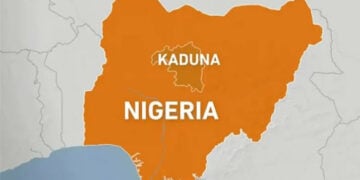The Nigerian government and the People’s Republic of China have elevated their bilateral relations to a Comprehensive Strategic Partnership. This upgrade aims to enhance growth and development in alignment with the philosophy of “building a community with a shared future.”
This enhanced partnership resulted from President Bola Tinubu’s state visit to Chinese President Xi Jinping and their joint participation in the 2024 Forum on China-Africa Cooperation (FOCAC) Summit, which took place in Beijing from September 4 to 6, 2024.
Since the inception of the FOCAC in 2000 and the China-Africa Development Fund in 2006, China’s economic ties with Africa have deepened significantly. During this year’s FOCAC Summit, Chinese President Xi Jinping outlined new investment initiatives for African countries worth billions of dollars.
In specific terms, China has opened opportunities for more Nigerian products to be exported into its 1.4 billion market following the improved relations amid numerous investment opportunities for Chinese companies in Nigeria.
Chinese Ambassador to Nigeria, Yu Dunhai emphasised this during a news conference in Abuja on Friday, stressing that the Comprehensive Strategic Partnership will boost cooperation in diverse fields for mutual benefits for both countries.
The Chinese envoy noted that Nigerian agricultural products such as peanuts are in high demand in the Chinese market adding that “China welcomes the expansion of bilateral trade and supports the import of more quality products from Nigeria into its market.”
He noted that President Tinubu’s visit to China is of great significance to build on past successes and to further advance China-Nigeria relations and China-Africa relations.
“Among all those leaders, President Tinubu was among the very few to be accorded a state visit, which fully reflects China’s high respect for President Tinubu, Nigerian people, the great importance China attaches to Nigeria as a major country, and China’s political commitment to developing bilateral relations and strengthening friendship between our two countries,” he said.
Within the framework of this partnership, Nigeria has reaffirmed its support to the One-China policy and stressed that the region of Taiwan remains an inseparable part of China despite the propaganda of anti-Chinese elements.
During President Tinubu’s visit, the relevant government departments of the two sides signed a total of 13 cooperation documents, covering such areas as high-quality Belt and Road cooperation planning, the implementation of the Global Development Initiative, economic growth, human resources, application of the Beidou Satellite Navigation System, export of peanuts to China, and the media exchanges.
Among them, one bilateral cooperation document covers around 19 projects that China and Nigeria are cooperating and intend to cooperate in. In addition, multiple cooperation agreements were signed between relevant departments, state governments and Chinese companies during the visit.
According to the envoy, Nigeria is willing to strengthen its partnership with China in the development of energy, mineral resources and to work with Chinese companies to set up plants in Nigeria to meet local consumption and export needs.
During the visit, the two countries pledged to jointly explore cooperation in areas such as digital economy, green development, blue economy and agricultural modernization, and foster new growth drivers in cooperation.
The two sides encouraged flexible and diverse regional monetary and financial cooperation such as local currency swaps, to facilitate trade between China and Nigeria and make contributions to global financial stability. They also agreed to carry out international cooperation on financial intelligence on anti-monetary laundering and countering the financing of terrorism (AML/CFT).
Director of the Centre for China Studies, Mr. Charles Onunaiju, in his remarks, advised the Nigerian government to activate its mechanisms to explore its partnership with China and ensure total implementation of the agreements signed with China.
He added that China is willing to assist Nigeria “drain the swamps poverty” ravaging the country and turn the country into an oasis of prosperity.
China in just over 40 years removed over 800 million of its citizens from absolute poverty into prosperity and Nigeria can learn from the Chinese experience.
It has become incumbent on Nigerian officials at the federal, states and local government levels to take advantage of the inter-governmental dialogue mechanism between China and Nigeria which guarantees cooperation even among sub- national institutions of both countries.
Part of the agreements is that states, local authorities and municipalities in China can engage with their Nigerian counterparts to generate practical outcomes in their cooperation. It is important that states, local governments in Nigeria can take advantage of this mechanism.
According to Onunaiju, beyond the blitz and glamour of the summit, Nigeria must find ways to begin genuine implementation of nearly 20 agreements signed with China. These must be activated to work, and efforts must be made to address the traditional deficit of implementation of policies that has beset Nigeria in recent years and halted its growth and development.
China is a force to reckon with today as an industrial global powerhouse because of disciplined and faithful implementation of policies and programmes that are foundational to its continued development.









